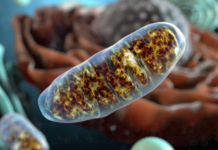Going back for a second dessert after your holiday meal might not be the best strategy for living a long, cancer-free life say researchers from the University of Alabama at Birmingham. That’s because they’ve shown exactly how restricted calorie diets — specifically in the form of restricted glucose — help human cells live longer. This discovery, published online in The FASEB Journal, could help lead to drugs and treatments that slow human aging and prevent cancer.
“Our hope is that the discovery that reduced calories extends the lifespan of normal human cells will lead to further discoveries of the causes for these effects in different cell types and facilitate the development of novel approaches to extend the lifespan of humans,” said Trygve Tollefsbol, Ph.D., a researcher involved in the work from the Center for Aging and Comprehensive Cancer Center at the University of Alabama at Birmingham. “We would also hope for these studies to lead to improved prevention of cancer as well as many other age-related diseases through controlling calorie intake of specific cell types.”
To make this discovery, Tollefsbol and colleagues used normal human lung cells and precancerous human lung cells that were at the beginning stages of cancer formation. Both sets of cells were grown in the laboratory and received either normal or reduced levels of glucose (sugar). As the cells grew over a period of a few weeks, the researchers monitored their ability to divide, and kept track of how many cells survived over this period.
They found that the normal cells lived longer, and many of the precancerous cells died, when given less glucose. Gene activity was also measured under these same conditions. The reduced glucose caused normal cells to have a higher activity of the gene that dictates the level of telomerase, an enzyme that extends their lifespan and lower activity of a gene (p16) that slows their growth. Epigenetic effects (effects not due to gene mutations) were found to be a major cause in changing the activity of these genes as they reacted to decreased glucose levels.
“Western science is on the cusp of developing a pharmaceutical fountain of youth” said Gerald Weissmann, M.D., Editor-in-Chief of The FASEB Journal. “This study confirms that we are on the path to persuading human cells to let us to live longer, and perhaps cancer-free, lives.”
Federation of American Societies for Experimental Biology (2009, December 26). Calorie restriction: Scientists take important step toward ‘fountain of youth’. ScienceDaily. Retrieved December 28, 2009, from http://www.sciencedaily.com /releases/2009/12/091222105219.htm













